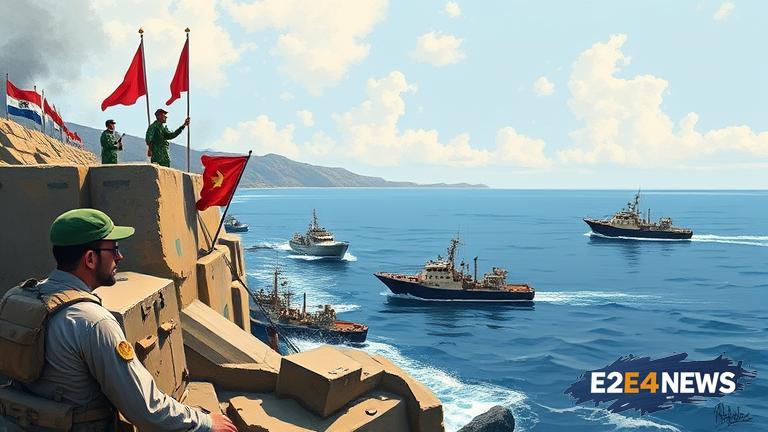A delegation from the Lebanese political and militant group Hezbollah has stated that Israel must act first in order to move forward with resolving the longstanding maritime border dispute between the two countries. The dispute centers around the demarcation of the Exclusive Economic Zone (EEZ) in the Mediterranean Sea, with both nations claiming rights to the area’s natural resources. The Hezbollah delegation emphasized that any further discussions or negotiations must be preceded by concrete actions from Israel. This stance is seen as a reflection of the deep-seated mistrust and tensions that have characterized the relationship between Lebanon and Israel for decades. The maritime border dispute has significant implications for the economic and energy security of both countries, as the area is believed to hold substantial reserves of natural gas and oil. Lebanon has been seeking to exploit these resources to address its severe economic crisis, while Israel has already begun extracting gas from its side of the disputed zone. The situation is further complicated by the involvement of other regional players, including the United States, which has been attempting to mediate a resolution to the dispute. Despite these efforts, a breakthrough has yet to be achieved, and the situation remains volatile. The Hezbollah delegation’s statement is likely to be seen as a hardening of the group’s position, and may undermine hopes for a negotiated settlement in the near future. The Lebanese government has been under pressure to reach an agreement with Israel, but the influence of Hezbollah, which is a key player in the country’s politics, cannot be ignored. The group’s stance on the maritime border dispute is likely to be a major factor in any future negotiations. The international community has been urging both sides to exercise restraint and to seek a peaceful resolution to the dispute. However, the lack of progress and the entrenched positions of the parties involved have raised concerns about the potential for escalation. The dispute has also been linked to the broader regional conflict between Israel and Iran, with Hezbollah being a key ally of the Iranian government. The situation is being closely watched by other countries in the region, which are concerned about the potential for the dispute to spill over into other areas. The United States has been attempting to build a coalition to counter Iranian influence in the region, and the maritime border dispute is seen as a key test of its ability to do so. Despite the challenges, there are still hopes that a negotiated settlement can be reached, and that the dispute can be resolved peacefully. However, this will require a significant shift in the positions of both sides, and a willingness to compromise on key issues. The Hezbollah delegation’s statement suggests that this may be a difficult task, and that the dispute may continue to simmer for some time to come. The economic implications of the dispute are also significant, with Lebanon facing a severe crisis and Israel seeking to expand its energy exports. The resolution of the dispute could have a major impact on the regional economy, and could help to stabilize the situation in Lebanon. However, the lack of progress and the entrenched positions of the parties involved have raised concerns about the potential for the dispute to continue indefinitely. The international community will be watching the situation closely, and will be urging both sides to seek a peaceful resolution to the dispute. The maritime border dispute between Lebanon and Israel is a complex and challenging issue, and one that will require careful diplomacy and negotiation to resolve. The statement from the Hezbollah delegation highlights the difficulties that lie ahead, and the need for a concerted effort to find a peaceful solution.





